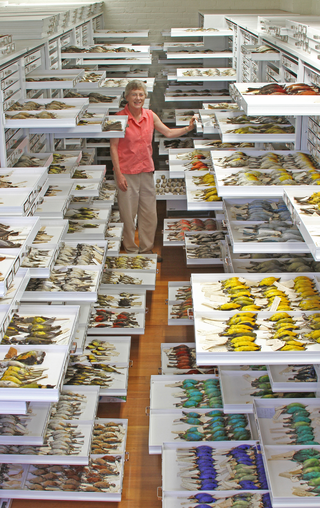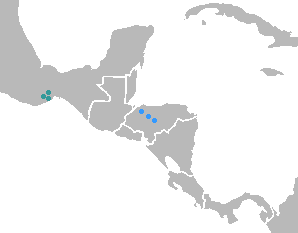
Comparative law is the study of differences and similarities between the law of different countries. More specifically, it involves the study of the different legal "systems" in existence in the world, including the common law, the civil law, socialist law, Canon law, Jewish Law, Islamic law, Hindu law, and Chinese law. It includes the description and analysis of foreign legal systems, even where no explicit comparison is undertaken. The importance of comparative law has increased enormously in the present age of internationalism, economic globalization, and democratization.
Comparative advantage in an economic model is the advantage over others in producing a particular good. A good can be produced at a lower relative opportunity cost or autarky price, i.e. at a lower relative marginal cost prior to trade. Comparative advantage describes the economic reality of the work gains from trade for individuals, firms, or nations, which arise from differences in their factor endowments or technological progress.

Comparative religion is the branch of the study of religions with the systematic comparison of the doctrines and practices, themes and impacts of the world's religions. In general the comparative study of religion yields a deeper understanding of the fundamental philosophical concerns of religion such as ethics, metaphysics and the nature and forms of salvation. It also considers and compares the origins and similarities shared between the various religions of the world. Studying such material facilitates a broadened and more sophisticated understanding of human beliefs and practices regarding the sacred, numinous, spiritual and divine.

Comparative anatomy is the study of similarities and differences in the anatomy of different species. It is closely related to evolutionary biology and phylogeny.

Comparative literature studies is an academic field dealing with the study of literature and cultural expression across linguistic, national, geographic, and disciplinary boundaries. Comparative literature "performs a role similar to that of the study of international relations but works with languages and artistic traditions, so as to understand cultures 'from the inside'". While most frequently practised with works of different languages, comparative literature may also be performed on works of the same language if the works originate from different nations or cultures in which that language is spoken.
Comparative psychology refers to the scientific study of the behavior and mental processes of non-human animals, especially as these relate to the phylogenetic history, adaptive significance, and development of behavior. The phrase comparative psychology may be employed in a narrow and a broad meaning. In its narrow meaning, it refers to the study of the similarities and differences in the psychology and behavior of different species. In a broader meaning, comparative psychology includes comparisons between different biological and socio-cultural groups, such as species, sexes, developmental stages, ages, and ethnicities. Research in this area addresses many different issues, uses many different methods and explores the behavior of many different species from insects to primates.
Cross-cultural studies, sometimes called holocultural studies or comparative studies, is a specialization in anthropology and sister sciences such as sociology, psychology, economics, political science that uses field data from many societies through comparative research to examine the scope of human behavior and test hypotheses about human behavior and culture.

Proto-Indo-European (PIE) is the reconstructed common ancestor of the Indo-European language family. No direct record of Proto-Indo-European exists; its proposed features have been derived by linguistic reconstruction from documented Indo-European languages.

Comparative genomics is a field of biological research in which the genomic features of different organisms are compared. The genomic features may include the DNA sequence, genes, gene order, regulatory sequences, and other genomic structural landmarks. In this branch of genomics, whole or large parts of genomes resulting from genome projects are compared to study basic biological similarities and differences as well as evolutionary relationships between organisms. The major principle of comparative genomics is that common features of two organisms will often be encoded within the DNA that is evolutionarily conserved between them. Therefore, comparative genomic approaches start with making some form of alignment of genome sequences and looking for orthologous sequences in the aligned genomes and checking to what extent those sequences are conserved. Based on these, genome and molecular evolution are inferred and this may in turn be put in the context of, for example, phenotypic evolution or population genetics.

Comparative politics is a field in political science characterized either by the use of the comparative method or other empirical methods to explore politics both within and between countries. Substantively, this can include questions relating to political institutions, political behavior, conflict, and the causes and consequences of economic development. When applied to specific fields of study, comparative politics may be referred to by other names, such as comparative government.

The Museum of Comparative Zoology is a zoology museum located on the grounds of Harvard University in Cambridge, Massachusetts. It is one of three natural-history research museums at Harvard, whose public face is the Harvard Museum of Natural History. Harvard MCZ's collections consist of some 21 million specimens, of which several thousand are on rotating display at the public museum. In July 2021, Gonzalo Giribet, Alexander Agassiz Professor of Zoology at Harvard and Curator of Invertebrate Zoology, was announced as the new director of the museum.

Jicaquean, also known as Tolan, is a small language family of Honduras. There are two attested Jicaquean languages, Tol and Western Jicaque, which Campbell (1997) reports were about as distant as English and Swedish. Only Tol survives.
The Comparative Labor Law and Policy Journal is a law journal which publishes articles in the field of comparative and transnational labor and employment law.

Integrative and Comparative Biology is the scientific journal for the Society for Integrative and Comparative Biology. Prior to volume 42 (2002), the journal was known as American Zoologist ISSN 0003-1569.

Historical sociology is an interdisciplinary field of research that combines sociological and historical methods to understand the past, how societies have developed over time, and the impact this has on the present. It emphasises a mutual line of inquiry of the past and present to understand how discrete historical events fit into wider societal progress and ongoing dilemmas through complementary comparative analysis.
The International & Comparative Law Quarterly is a law review published quarterly by the British Institute of International and Comparative Law. It was established in 1952 and covers comparative law as well as public and private international law, including human rights, war crimes, and genocide, World Trade Organization law and investment treaty arbitration, recent developments of international courts and tribunals, as well as comparative public and private law all over the world. In addition to longer articles, the journal publishes book reviews. The editor-in-chief is Malcolm Evans and the Managing Editor is Anthony Wenton.
The Annual Bulletin of the Comparative Law Bureau of the American Bar Association (ABA) was a U.S. specialty law journal. The first comparative law journal in the United States, it surveyed foreign legislation and legal literature. Circulated to all ABA members, it was absorbed in 1915 by the newly formed American Bar Association Journal.
The American Journal of Comparative Law (AJCL) is a quarterly, peer-reviewed law journal devoted to comparative and transnational legal studies—including, among other subjects, comparative law, comparative and transnational legal history and theory, private international law and conflict of laws, and the study of legal systems, cultures, and traditions other than those of the United States. In its long and rich history, the AJCL has published articles authored by scholars representing all continents, regions, and legal cultures of the world. It is published by Oxford University Press on behalf of the American Society of Comparative Law. As of 2014, it is co-hosted and administered by the Institute of Comparative Law and the Georgetown University Law Center. It has been hosted in the past by institutions such as University of California, Berkeley School of Law, Columbia Law School, and the University of Michigan Law School. The current Editors-in-Chief are Georgetown University Law Center’s Franz Werro, and McGill University's Helge Dedek.
Comparative Studies of South Asia, Africa and the Middle East is a triannual peer-reviewed academic journal covering Comparative Studies on Africa, the Middle East, and South Asia. It provides a "critical and comparative analyses of the histories, cultural productions, social and gender relations, politics, and economies" of these regions. It is published by the Duke University Press, and since 2012, edited at Columbia University.










